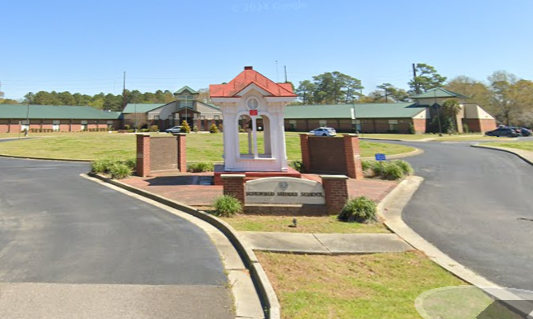
A South Carolina middle school teacher is facing serious allegations after being arrested on five counts of sexual exploitation of a minor, according to WRDW.
Michael Poda, 34, a band teacher at Schofield Middle School located at 224 Kershaw St NE, Aiken, SC 29801, was taken into custody after investigators discovered explicit images of girls aged 10 to 12 and a video involving a 12 to 14-year-old girl on his phone. Details of the charges were outlined in the arrest warrant, which followed a report from the South Carolina Attorney General’s Office.
Schofield Middle School officials were notified of the arrest on Wednesday morning. Poda, who has worked at the school for two years, has been placed on administrative leave while the investigation remains ongoing.
On Thursday, Poda was released from the Aiken County Detention Center after posting a $15,000 bond. Authorities have not disclosed whether additional charges may follow as the investigation continues.
The case has prompted widespread concern among parents and staff, with many demanding answers about how such actions could occur under the watch of educational institutions. Investigators are working to uncover the full scope of the situation.

When allegations of abuse surface involving a trusted educator, families are often left grappling with questions about accountability and the steps they can take to protect their children. James Moore, a South Carolina attorney specializing in teacher student sexual abuse cases, explains the legal options available to victims and their families. From criminal charges to civil lawsuits, Moore provides a clear understanding of how the legal system can address such violations and support those impacted.
Editor Darla Medina: In cases like this, where a middle school teacher is accused of such serious offenses, what legal options are available for the victims and their families?
Attorney James Moore: The victims and their families can pursue both criminal and civil actions. Criminally, the state prosecutes the offender, aiming for justice and public safety. However, victims and their families can also file civil lawsuits to seek compensation for the emotional and psychological harm caused.
Medina: What factors might influence a family’s decision to file a civil lawsuit?
Moore: One key factor is accountability. Filing a civil suit allows families to hold not only the individual accountable but possibly the institution as well, if there’s evidence of negligence. For example, if the school failed to act on prior complaints or ignored red flags, they could bear some responsibility.
Medina: What challenges do victims face in cases like this?
Moore: Sadly, these cases can be emotionally taxing. Victims often fear stigma or retaliation, especially when the accused is someone in a position of trust like a teacher. That’s why it’s critical to handle cases with sensitivity and ensure that victims feel supported throughout the process.
Medina: Are there resources in South Carolina to assist victims and their families?
Moore: Yes, there are organizations that provide counseling, legal support, and advocacy for victims of sexual abuse. Families should reach out to these groups early to ensure they receive the help they need.
No family should face the aftermath of abuse alone. Legal action can be a powerful tool to hold perpetrators accountable and secure the support victims need to move forward. If your family has been affected by teacher misconduct or abuse, contact us today for a free and confidential consultation. Together, we can explore your options and work toward the justice you deserve.
 info@legalherald.com
info@legalherald.com